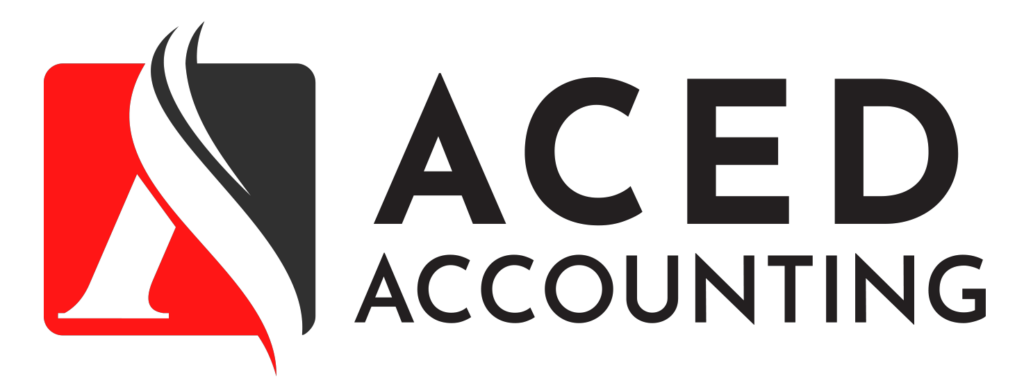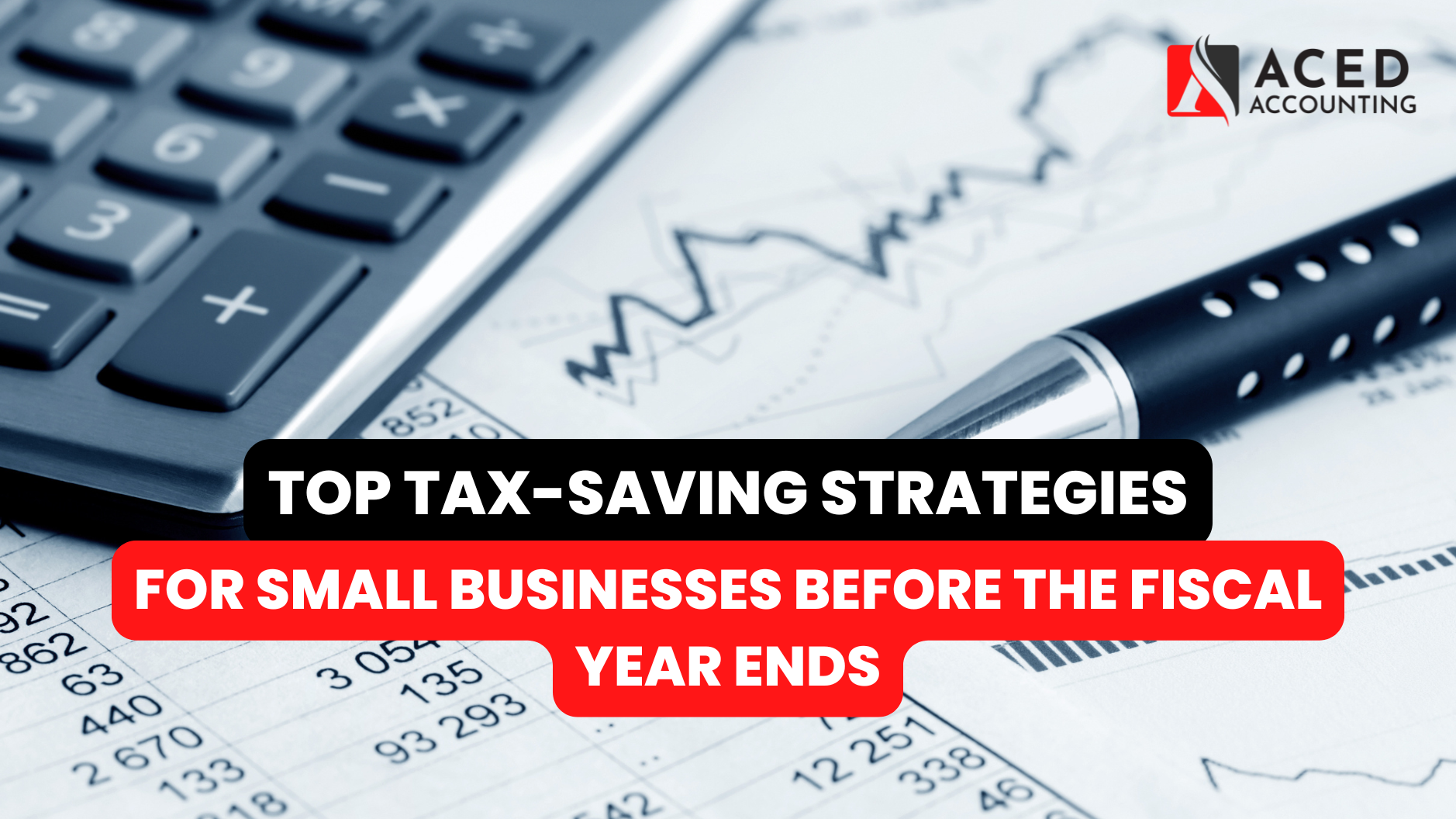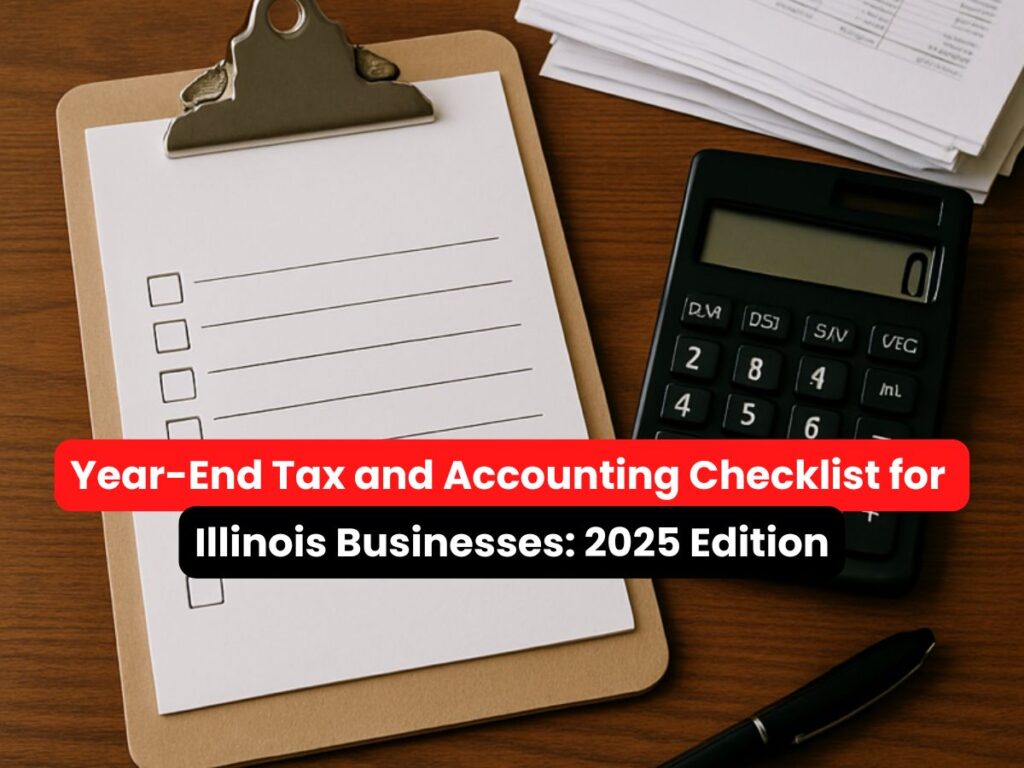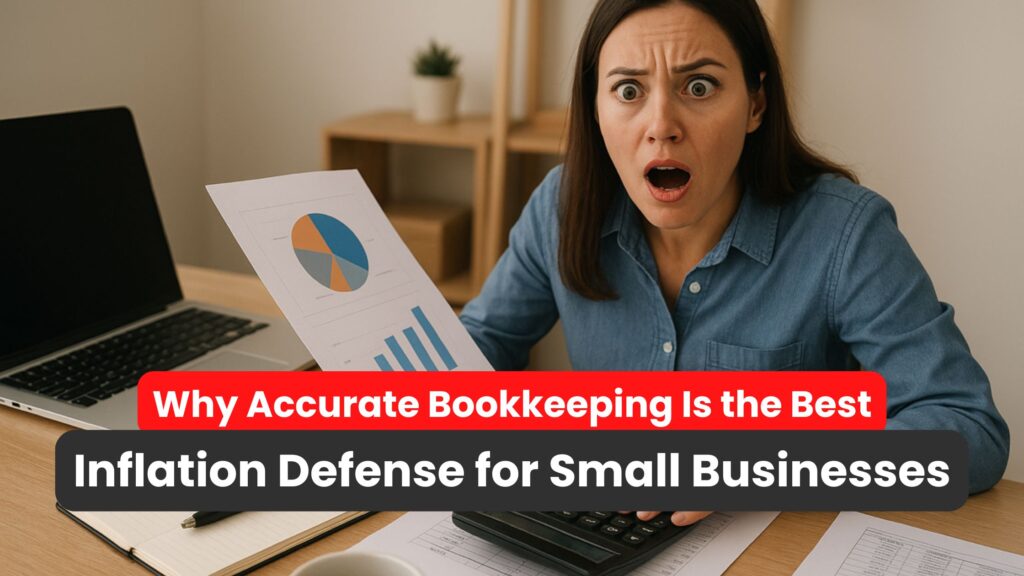As the fiscal year is about to close, the small business owner will be on maximum profitability with minimum tax liability. Proper tax planning has made all the difference in the bottom line of the business and saved each hard-earned dollar while positioning you for success down the road. Now is the time to put into play several strategies for saving tax burden. This blog will outline top tax-saving strategies that small businesses can leverage before the close of the fiscal year. Through the implementation of these tactics, you will reduce your tax liability and improve your overall financial health.

1. Accelerate Expenses and Defer Income
One of the most common year-end tax-saving strategies is to accelerate expenses and defer income. The effectiveness of this is best with cash-basis accounting businesses. Acceleration of currently deductible expenses, such as buying supplies, equipment, or services before the end of the fiscal year, reduces your taxable income. On the other hand, deferring income means you avoid paying taxes on that revenue until the next fiscal year.
For example, if you know there is large cash to come at the end of December, consider factoring your invoice to post at the beginning of January, thus taking that taxable income to the next year. In the meantime, you can pay expenses well before they become taxable, such as rent, utilities, or marketing expenses.
2. Maximize Retirement Contributions
Probably, contributions to a retirement plan is the best tax-saving tool for small business owners. Contributions to all types of retirement accounts, whether it is SEP IRAs, Solo 401(k) or SIMPLE IRAs, are tax-deductible, which certainly lowers taxable income. Moreover, all of these contributions grow on a tax-deferred basis so income taxes will not be paid on those earnings until withdrawal from the retirement account at retirement.
For 2024, a small business owner can contribute up to $66,000 to a SEP IRA or Solo 401(k), which is dependent on income and plan type. If you have not yet made contributions to a retirement plan, you can set one up and begin contributing before the fiscal year expires. That’s a good way to get ready for your future and get a significant tax deduction.
3. Take Advantage of Section 179 Deduction
A good tax-saving strategy; small businesses can deduct the full cost of qualifying equipment and software purchased or financed during the tax year under Section 179 deduction.
The Section 179 deduction for 2024 is $1,160,000, while the onset threshold for elimination is $2,890,000. Section 179 deduction can be taken on products such as office equipment, machinery, vehicles, and computer software. You could reduce your taxable income by a considerable amount if you make qualifying purchases before the end of the fiscal year.
4. Utilize the Qualified Business Income (QBI) Deduction
So, what is this Qualified Business Income (QBI) deduction you’re talking about? Also known as the Section 199A deduction, it allows eligible small business owners to subtract up to 20% of their qualified business income from their taxable income. It’s a fantastic deduction for sole proprietors, partnerships, LLCs, and S corporations. But the income that’s really eligible to be deducted is capped by your taxable income and the type of business you operate.
To fully utilize your QBI deduction, here are a few strategies that you can apply. Some common approaches include deferring your income or making retirement plan contributions to lower taxable income. That being the case, this is a temporary opportunity, and after 2025, the deduction will cease.
5. Review Your Depreciation Deductions
Depreciation is one of the most effective tools for reducing income. Be sure to review your depreciation schedule to ensure that you claim all eligible, available deductions. Bonus Depreciation: This is another depreciable asset available to small business owners. You can claim a percentage of the cost of qualified property under bonus depreciation.
The bonus depreciation rate is 80% for property placed in service during 2024 as opposed to 100% in prior years. The items consist of machinery, equipment, and certain improvements on commercial property. Review your assets and confer with a tax professional to determine the potential to accelerate depreciation and reduce your tax liability.
6. Review Health Care Options and Tax Credits
If you have a business that provides health insurance to employees, it might qualify for the small business health care tax credit. Employers are now entitled to the small business health care tax credit if they have fewer than 25 full-time employees and pay at least 50% of the premiums for their employees’ health insurance. The amount of the credit will range from 50% of the premiums paid and will, ultimately, lower the total tax you owe.
Yet another. If you are self-employed, you can write off 100 percent of the premiums that you pay for health insurance, even when including the premiums that you pay for family members on your plans. That can really help reduce a tax bill.
7. Take Advantage of the Work Opportunity Tax Credit (WOTC)
The Work Opportunity Tax Credit, WOTC, is a federal tax credit provided for employers hiring members of certain targeted groups including veterans, the long-term unemployed, and recipients of government assistance. The WOTC can reduce your tax liability by up to $9,600 per eligible employee.
To expand the workforce, employers can hire staff from these target groups before the end of the fiscal year to gain valuable tax credits. One can reduce tax burden while providing an opportunity to those people who cannot enter the workplace.
8. Conduct a Year-End Inventory Review
For small businesses with physical inventory, conducting a year-end review is an essential tax-saving strategy. This involves assessing your inventory for any damaged, obsolete, or unsellable items. Writing off unsellable inventory as a deduction reduces your taxable income and ensures your financial statements accurately reflect your current inventory levels.
This will also help to spot slow-moving products and adjust buying strategy for next year. One can further monitor inventory closely in order to optimize cash flow and reduce tax liability.
9. Consider Charitable Contributions
If you want to do something good for society and can take some of the tax paid, donations should be made now because contributions to any qualified charitable organization are tax-deductible, lowering taxable income.
Whether you’re donating cash, goods, or services, be sure to keep detailed records of your contributions. For contributions over $250, you’ll need a written acknowledgment from the charity to claim the deduction.
10. Hire a Tax Professional for Expert Guidance
Tax planning at year-end is complex, and tax-deduction and credits rules always change. A knowledgeable tax professional would ensure that all strategies for saving income taxes are taken with respect to deductible and non-deductible items and thus prevent costly mistakes. A certified public accountant or tax advisor would do a lot of good in sifting through the intricacies of tax law, increasing additional allowable deductions, and tailoring a proper tax plan that suits the needs of an enterprise.
Let Aced Accounting Help You Save on Taxes

Aced Accounting collaborates with all industries to deliver low-cost accounting, bookkeeping, and consulting for their business. We know the things that small businesses go through and how small businesses can be affected by financial matters and tax liabilities. Preparation of financial statements, categorization of transactions, and all in between are done by our one-stop shop at Aced Accounting.
Partner with Aced Accounting today, so you can focus on growing your business while we take care of your company’s finances. Our accounting services for small businesses and corporate have been tailored to give you timely compliance and the best savings opportunities. From a single proprietorship to a large corporation, Aced Accounting is the single destination for full-service accounting and bookkeeping services for small businesses and corporate.
Allow us to develop a smart tax-saving plan for you so you’ll be able to close the fiscal year strong and have your business set up correctly for the future. Contact Aced Accounting today to get started!
